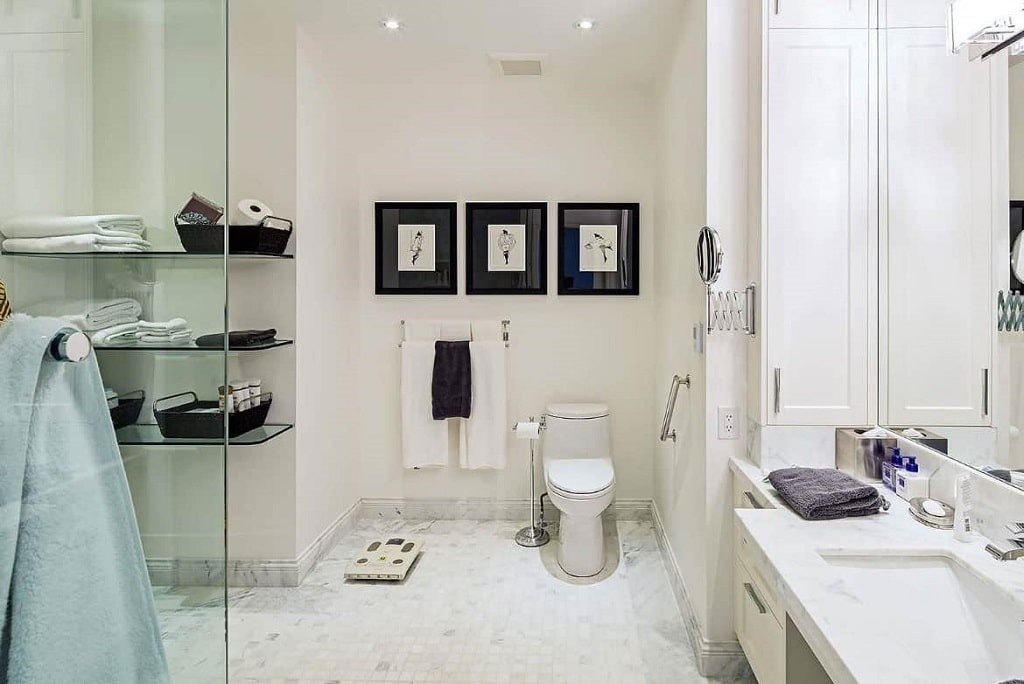Bathrooms can often be perilous spaces within a home, especially for seniors. With the ever-present risk of slips and falls, it’s imperative to consider fall prevention in bathrooms to safeguard ourselves and our loved ones. Whether you’re addressing the needs of an elderly family member or taking preventative measures for everyone in the household, understanding how to minimize risks can make a significant difference.

Why is Bathroom Safety Crucial?
Bathrooms have slippery surfaces and typically confined spaces, which increase the risk of falls. This is especially concerning for seniors, who may already experience balance issues or decreased mobility. Establishing a safe bathroom environment can prevent injuries and provide peace of mind for families.
Common Bathroom Hazards
Many bathrooms contain hazards that can lead to slips and falls. Wet floors, loose mats, and hard, unforgiving surfaces are just a few examples. Understanding the potential risks allows for better safety planning and prevention strategies.
Designing a Safe Bathroom
A well-designed bathroom considers both function and safety. Below are some key steps to take:
Installing Grab Bars
Grab bars in areas like the shower, bathtub, and near the toilet provide support and stability, reducing the chance of slipping.
For more ideas on designing a senior-friendly bathroom, visit these bathroom safety tips.
Choosing Non-Slip Flooring
Non-slip tiles or specially designed bath mats can substantially reduce the risk of falls. Consider these materials when renovating or designing your bathroom.
Daily Safety Practices
Beyond design, adopting daily safety habits is crucial.
Keeping the Floor Dry
Encourage family members to ensure floors are dry before leaving the bathroom, as pooling water can create a slipping hazard.
Organizing Bathroom Necessities
Arrange toiletries and other items within reach to minimize the need for stretching or reaching, which can compromise balance.
Explore further on how to manage safety in household settings for seniors.
Maintaining Bathroom Equipment
Regular maintenance of bathroom fixtures and accessories helps prevent unexpected accidents.
Inspecting and Fixing Leaks
Leaking fixtures can make floors slippery, so ensuring all fittings are securely in place is essential.
Regular Cleaning
Maintaining clean surfaces decreases grime buildup, which can be slippery and lead to falls.
Learn about related safety concerns for seniors beyond the bathroom.
Healthcare and Professional Support
Enlisting help from healthcare professionals can further enhance bathroom safety.
Consulting with Occupational Therapists
Occupational therapists can suggest personalized modifications for bathroom safety, particularly for those with specific needs.
Engaging Home Care Services
Hiring home care specialists can offer practical daily assistance and ensure safe bathroom usage.
For further guidance, consider exploring resources available for elderly care.
Technology’s Role in Safety
Incorporating technology in the bathroom can also aid in fall prevention.
Utilizing Fall Alert Systems
Equipped with sensors, these systems can notify family members in case of a fall, providing an added layer of security.
Smart Lighting Solutions
Automated lighting can significantly reduce the risk of stumbling in dim conditions, contributing to overall bathroom safety.
Read more on how technology aids safety in various areas of senior living.
Conclusion
Fall prevention in bathrooms is vital for ensuring that everyone, especially seniors, can use this space safely. With proper planning, design, and everyday habits, the risk of falls can be greatly minimized.

FAQs
What type of flooring is best for bathroom safety?
Non-slip tiles or cushioned vinyl are ideal for preventing falls.
Are there government programs to help with bathroom modifications?
Yes, many government initiatives and non-profits offer funding for bathroom modifications aimed at increasing safety for seniors.
How can lighting enhance bathroom safety?
Motion-sensor lights can brighten the bathroom as soon as someone enters, reducing tripping hazards.
This article contains affiliate links. We may earn a commission at no extra cost to you.

